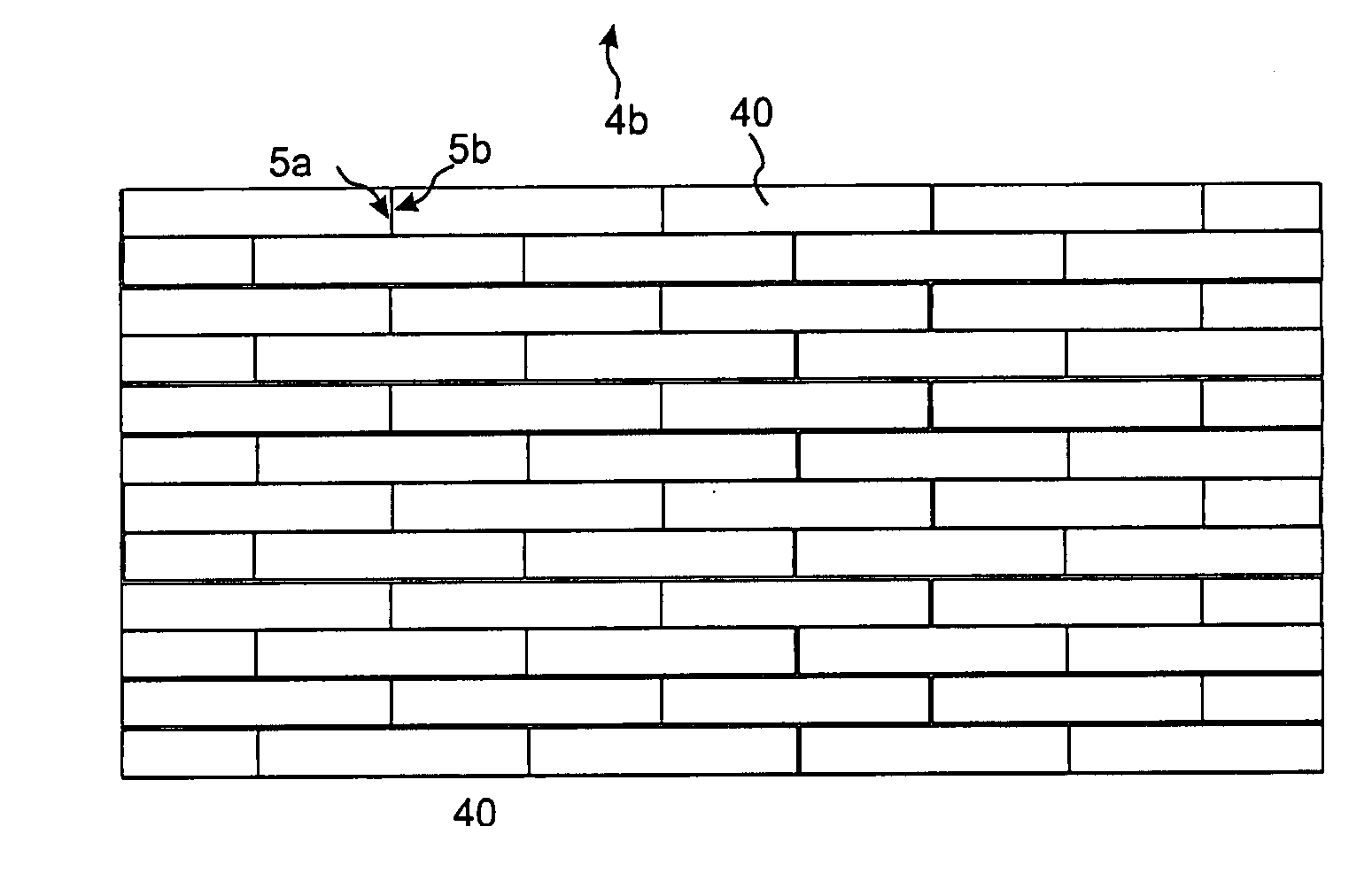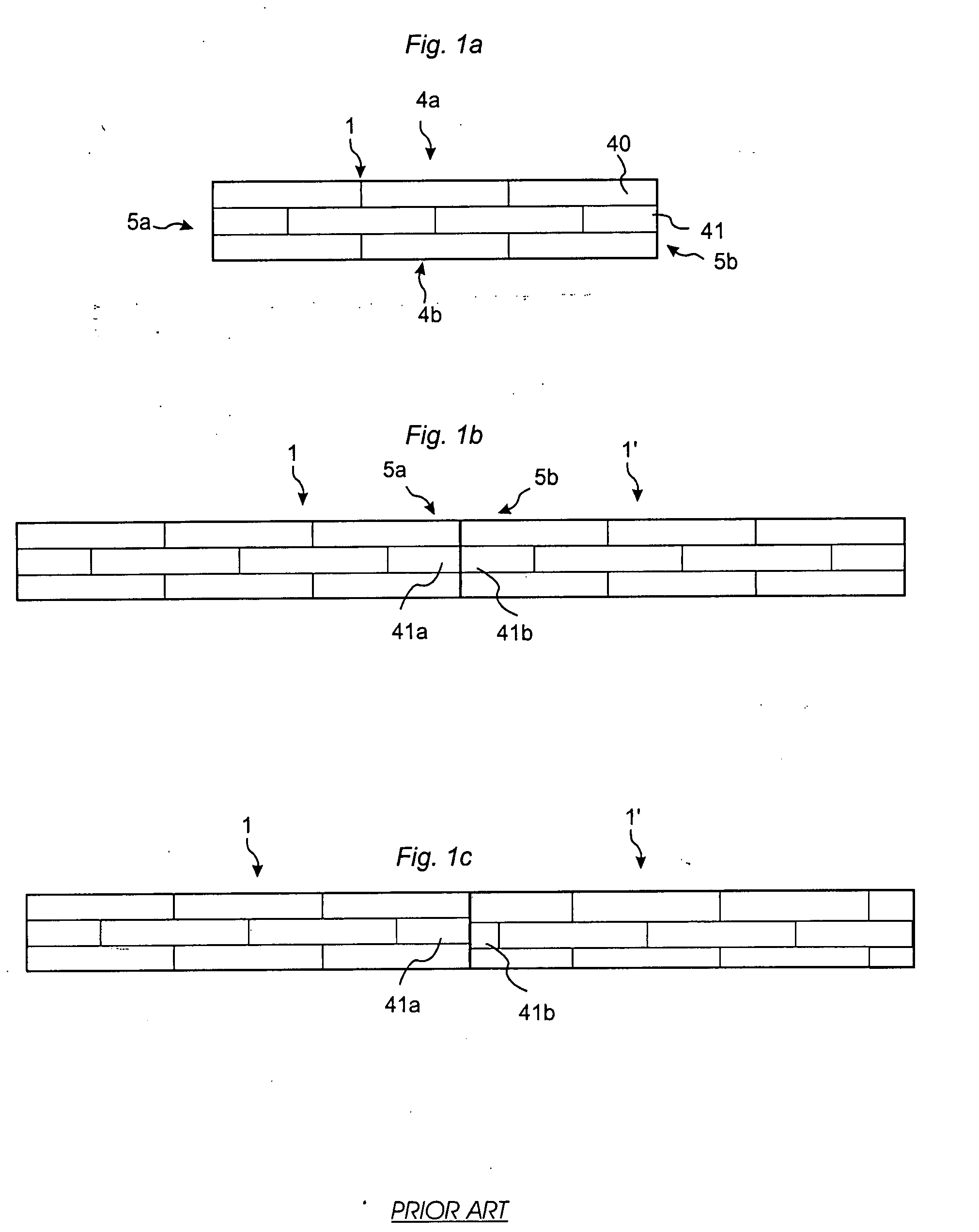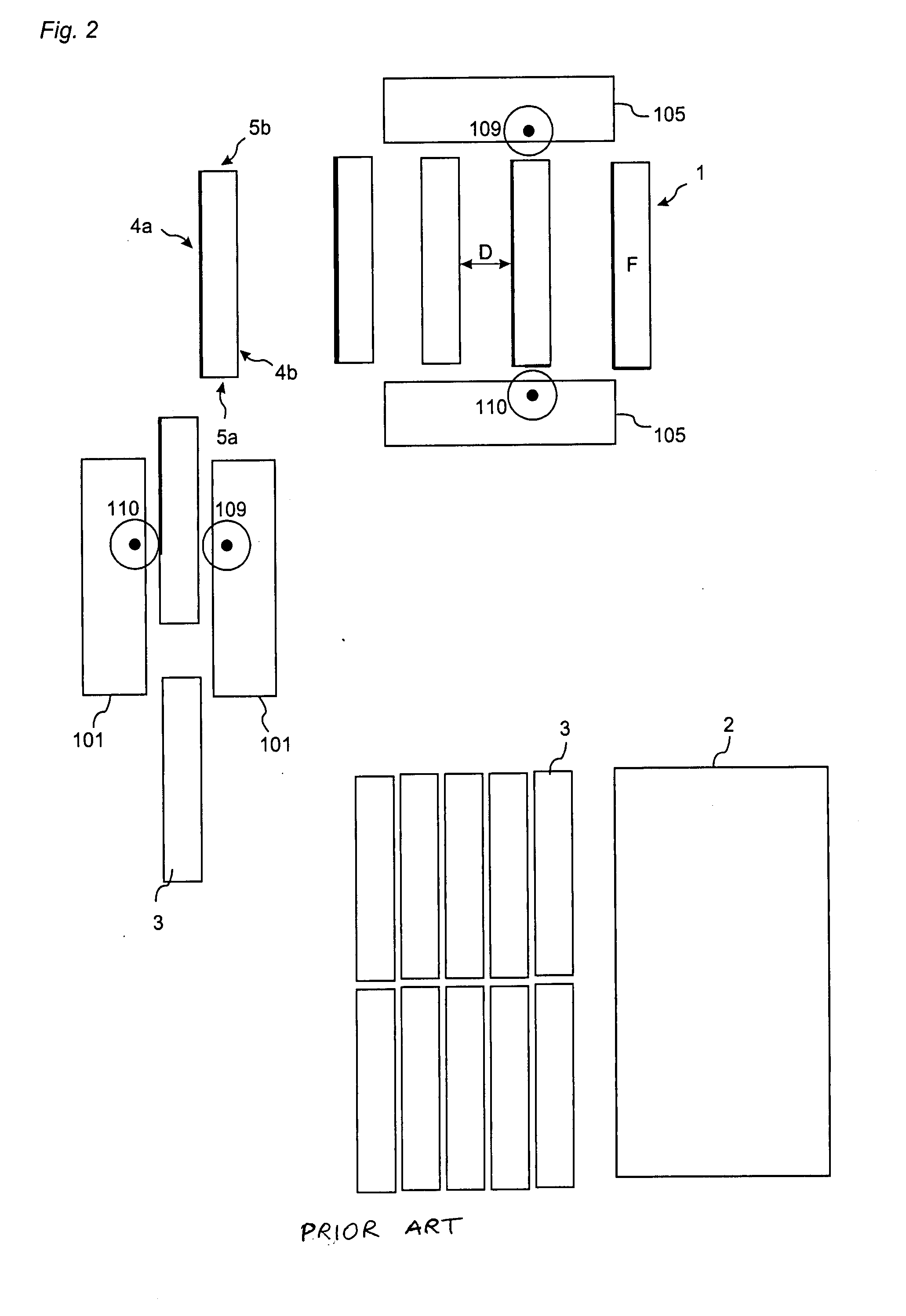Floorboards, flooring systems and method for manufacturing and installation thereof
a technology for flooring and floorboards, which is applied in the field of floorboards, can solve the problems of high cost of joint machining, large amount of joints at the long sides of narrow panels, so as to reduce the amount of material waste, increase the wear resistance, and reduce the cost
- Summary
- Abstract
- Description
- Claims
- Application Information
AI Technical Summary
Benefits of technology
Problems solved by technology
Method used
Image
Examples
Embodiment Construction
[0070]FIGS. 4a-c illustrate floorboards 1, 1= whose long sides 4a, 4b and short sides 5a, 5b are provided with mechanical locking systems. The vertical locking means may comprise, for example, a tongue groove 23 and a tongue 22 (see FIG. 5a). The horizontal locking means may comprise locking elements 8 which cooperate with locking grooves 14. All floorboards are rectangular and have a width corresponding to a traditional parquet block. Thus the width is about one third of a traditional laminate floorboard. In FIG. 4a, the surface of the floorboard has the shape of a parquet block. In FIG. 4b, the surface has a decorative surface layer consisting of two parquet blocks, and in FIG. 4c the surface layer consists of three parquet blocks. The surface layer can be laminate, wood, plastic, linoleum, cork, various fiber materials such as needle felt and the like. The surface can also be printed and / or varnished.
[0071]FIG. 4d shows that such floorboards, which may thus comprise one or more ...
PUM
| Property | Measurement | Unit |
|---|---|---|
| length | aaaaa | aaaaa |
| length | aaaaa | aaaaa |
| width | aaaaa | aaaaa |
Abstract
Description
Claims
Application Information
 Login to View More
Login to View More - R&D
- Intellectual Property
- Life Sciences
- Materials
- Tech Scout
- Unparalleled Data Quality
- Higher Quality Content
- 60% Fewer Hallucinations
Browse by: Latest US Patents, China's latest patents, Technical Efficacy Thesaurus, Application Domain, Technology Topic, Popular Technical Reports.
© 2025 PatSnap. All rights reserved.Legal|Privacy policy|Modern Slavery Act Transparency Statement|Sitemap|About US| Contact US: help@patsnap.com



